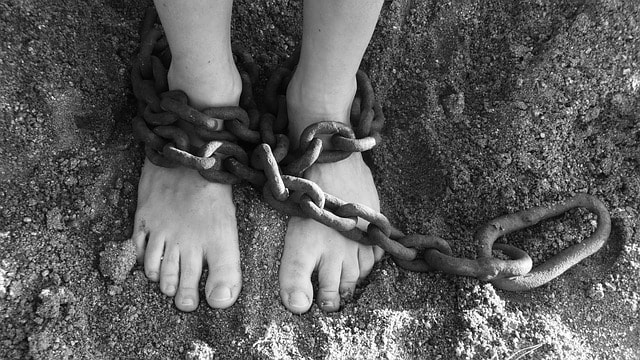Pathocracy (from Greek pathos, "feeling, pain, suffering"; and kratos, "rule") is a totalitarian form of government in which absolute political power is held by a psychopathic elite, and their effect on the people is such that the entire society is ruled and motivated by pathological values.
A pathocracy can take many forms and can insinuate itself covertly into any seemingly just system or ideology. As such it can masquerade under the guise of a democracy or theocracy as well as more openly oppressive regimes.
The term pathocracy was coined by Polish psychologist Dr. Andrzej M. Łobaczewski as a result of his study of ponerology. The word reflects Lobaczewski's treatment of the phenomenon as something analogous to a disease or pathology, on a macrosocial level.
Characteristics
Life cycle
Birth
Studies have demonstrated that the human population contains a percentage (approximately 5%) of essential psychopaths, that is, people without a conscience. Certain types of psychopaths instinctively gravitate towards positions of power over others - left to operate unchecked, they will always make choices that empower them to further manipulate the people around them. And so the seeds of a pathocracy exists within these psychological deviants.
Lobaczewski describes the process, as part of the hysteroidal cycle, in which during long periods of 'good times', ignorance and complacency develop within society, to the point that those psychopaths who naturally gravitate towards positions of power are actually able to gain a foothold in society, undetected. ("All that is necessary for the triumph of evil is that good men do nothing" - Edmund Burke)
Growth
The strength of a fledgling pathocracy grows via a process analogous to an infection (ponerization) – this is facilitated by the hystericization of society, a process analogous to breaking down of one's immune system, causing an increase in vulnerability to such infection. Gradually the behaviour of a growing percentage of the population sucumbs to pathological egotism via psychological induction. This is a process whereby the hysterical and pathological behaviour of one person inhibits the normal psychological processes of the people he interacts with, and so any one person is subjected to an increasing pressure of pathological behaviour which reduce his cognitive ability to function properly. This process is enabled via many propaganda techniques, especially those aimed at the psychological weaknesses (from the psychopath's point of view) of normal humans, such as susceptibility to emotional manipulation via appeals to conscience: moralizing interpretations, paramoralisms, reversive blockade, information selection and substitution.
As this process gathers pace, a progressive negative selection takes place in society – ie. the people most suited to any given role are gradually replaced by those with more advanced pathological behaviour. This can be clearly seen in Western Capitalism where, to 'get ahead', it is almost obligatory to be ruthless and amoral.
Death
Due to its incremental suppression of all forms of creativity, a pathocracy is inherently unsustainable, and at some point it has to collapse under its own weight. However it is possible for a pathocracy to gain enormous power and destructive potential before this happens, due to the progressive centralization of resources and control. Therefore, if a pathocracy is left to burn out under its own steam, it may destroy much of the surrounding world at the same time.
A pathocracy is often destroyed from within, due to the characteristic lack of 'creative foresight' by the rulers. "Germs are not aware that they will be burned alive or buried deep in the ground along with the human body whose death they are causing." - Political Ponerology; p199
Prevention and Cure
The primary curative measure suggested by Lobaczewski is for a much more widespread and comprehensive psychological education especially regarding the behaviours that hold a pathocracy together. When the general level of awareness of such manouvres as the reversive blockade is raised, then they fail to have the same potency because their audience can 'see through the trick'.
As for long-term prevention, Lobaczewski suggests that we look to more primitive societies, such as the Australian Aborigines that have survived for millenia largely unchanged and on a very different basis to western civilization. Two key ingredients that mark this difference are:
Examples in fiction
Classic fiction contains various examples of pathocracy in action. Fiction can often be used to illustrate a valuable concept or social observation that would be too personally dangerous for the author to present on a purely factual basis. The cold war era produced these examples of dystopian vision:
Ray Bradbury – Fahrenheit 451, first published 1953
Joseph Heller – Catch-22, first published 1961
Aldous Huxley – Brave New World, first published 1932
George Orwell – Nineteen Eighty-Four, first published 1948
Examples in history
Ancient Egypt
Roman Empire
Mongol Empire
British Empire
Nazi Germany
Israel
United States of America
Excerpt from Casswiki "Pathocracy" 12-14-2017
A pathocracy can take many forms and can insinuate itself covertly into any seemingly just system or ideology. As such it can masquerade under the guise of a democracy or theocracy as well as more openly oppressive regimes.
The term pathocracy was coined by Polish psychologist Dr. Andrzej M. Łobaczewski as a result of his study of ponerology. The word reflects Lobaczewski's treatment of the phenomenon as something analogous to a disease or pathology, on a macrosocial level.
Characteristics
- Suppression of individualism and creativity.
- Impoverishment of artistic values.
- Impoverishment of moral values; a social structure based on self-interest and one-upmanship, rather than altruism.
- Fanatical ideology; often a corrupted form of a valid viable 'trojan' ideology which is perverted into a pathological form, bearing little resemblance to the substance of the original.
- Intolerance and suspicion of anyone who is different, or who disagrees with the state.
- Centralized control
- Corruption
- Secret activities within government, but surveillance of the general population. (In contrast, a healthy society would have transparent government processes, and respect for privacy of the individual citizen).
- Paranoid and reactionary government.
- Excessive, arbitrary, unfair and inflexible legislation; the power of decision making is reduced/removed from the citizens' everyday lives.
- An attitude of hypocrisy and contempt demonstrated by the actions of the ruling class, towards the ideals they claim to follow, and towards the citizens they claim to represent.
- Controlled media, dominated by propaganda.
- Extreme inequality between the richest and poorest.
- Endemic use of corrupted psychological reasoning such as paramoralisms, conversive thinking and doubletalk.
- Rule by force and/or fear of force.
- People are considered as a 'resource' to be exploited (hence the term "human resources"), rather than as individuals with intrinsic human worth.
- Spiritual life is restricted to inflexible and indoctrinare schemes. Anyone attempting to go beyond these boundaries is considered a heretic or insane, and therefore dangerous.
- Arbitrary divisions in the population (class, ethnicity, creed) are inflamed into conflict with one another.
- Suppression of free speech - public debate, demonstration, protest.
- Violation of basic human rights, for example: restriction or denial of basic life necessities such as food, water, shelter; detainment without charge; torture and abuse; slave labour.
Life cycle
Birth
Studies have demonstrated that the human population contains a percentage (approximately 5%) of essential psychopaths, that is, people without a conscience. Certain types of psychopaths instinctively gravitate towards positions of power over others - left to operate unchecked, they will always make choices that empower them to further manipulate the people around them. And so the seeds of a pathocracy exists within these psychological deviants.
Lobaczewski describes the process, as part of the hysteroidal cycle, in which during long periods of 'good times', ignorance and complacency develop within society, to the point that those psychopaths who naturally gravitate towards positions of power are actually able to gain a foothold in society, undetected. ("All that is necessary for the triumph of evil is that good men do nothing" - Edmund Burke)
Growth
The strength of a fledgling pathocracy grows via a process analogous to an infection (ponerization) – this is facilitated by the hystericization of society, a process analogous to breaking down of one's immune system, causing an increase in vulnerability to such infection. Gradually the behaviour of a growing percentage of the population sucumbs to pathological egotism via psychological induction. This is a process whereby the hysterical and pathological behaviour of one person inhibits the normal psychological processes of the people he interacts with, and so any one person is subjected to an increasing pressure of pathological behaviour which reduce his cognitive ability to function properly. This process is enabled via many propaganda techniques, especially those aimed at the psychological weaknesses (from the psychopath's point of view) of normal humans, such as susceptibility to emotional manipulation via appeals to conscience: moralizing interpretations, paramoralisms, reversive blockade, information selection and substitution.
As this process gathers pace, a progressive negative selection takes place in society – ie. the people most suited to any given role are gradually replaced by those with more advanced pathological behaviour. This can be clearly seen in Western Capitalism where, to 'get ahead', it is almost obligatory to be ruthless and amoral.
Death
Due to its incremental suppression of all forms of creativity, a pathocracy is inherently unsustainable, and at some point it has to collapse under its own weight. However it is possible for a pathocracy to gain enormous power and destructive potential before this happens, due to the progressive centralization of resources and control. Therefore, if a pathocracy is left to burn out under its own steam, it may destroy much of the surrounding world at the same time.
A pathocracy is often destroyed from within, due to the characteristic lack of 'creative foresight' by the rulers. "Germs are not aware that they will be burned alive or buried deep in the ground along with the human body whose death they are causing." - Political Ponerology; p199
Prevention and Cure
The primary curative measure suggested by Lobaczewski is for a much more widespread and comprehensive psychological education especially regarding the behaviours that hold a pathocracy together. When the general level of awareness of such manouvres as the reversive blockade is raised, then they fail to have the same potency because their audience can 'see through the trick'.
As for long-term prevention, Lobaczewski suggests that we look to more primitive societies, such as the Australian Aborigines that have survived for millenia largely unchanged and on a very different basis to western civilization. Two key ingredients that mark this difference are:
- Decentralised authority and decision making.
- A 'psychological immunization' process as part of a rite of passage, whereby some hardship or ordeal is endured, with the purpose of enabling the participant to have a richer understanding of life (for example, the Aboriginal walkabout).
Examples in fiction
Classic fiction contains various examples of pathocracy in action. Fiction can often be used to illustrate a valuable concept or social observation that would be too personally dangerous for the author to present on a purely factual basis. The cold war era produced these examples of dystopian vision:
Ray Bradbury – Fahrenheit 451, first published 1953
Joseph Heller – Catch-22, first published 1961
Aldous Huxley – Brave New World, first published 1932
George Orwell – Nineteen Eighty-Four, first published 1948
Examples in history
Ancient Egypt
Roman Empire
Mongol Empire
British Empire
Nazi Germany
Israel
United States of America
Excerpt from Casswiki "Pathocracy" 12-14-2017



 RSS Feed
RSS Feed
